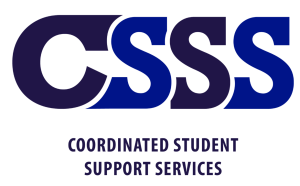Business and Industry Partnerships
Nebraska School, Family, and Community Engagement Framework
Business and industry partnerships are collaborations between business and industry groups and education. This could include internships, tours of businesses and industries to connect to content area or career and technical education and training standards. It’s important to know that businesses might not immediately think of schools and childcare providers when discussing business and industry partnerships. Instead they may first think of collaborations between businesses within an industry or collaborations between industries.
The Need for Business and Industry Partnerships
Business and industry partnerships can enhance the education of young people and increase the capacity of local education providers. Intentional business and industry partnerships provide opportunities to improve Pre-K-12 student outcomes and experiences. Such experiences prepare students to meet the local needs of current and future employers, and connect families to community resources.
Business and industry partnerships:
- Develop both academic and employability competencies
- Build networking opportunities
- Create opportunities for young people
- Strengthen local communities
- Support families in understanding career choices
- Provide students with experiential learning opportunities
Finding Local Partnerships to Meet ALL Student’s Needs
When searching for local business and industry partnerships, finding business owners and industry representatives that reflect the local school population is a great first step to building a lasting and meaningful relationship. Students will be more likely to engage positively when they can see themselves represented in the partnership.
 Perkins V reflects the 100-year federal commitment to Career Technical Education (CTE) by providing federal support for CTE programs and focuses on improving the academic and technical achievement of CTE students, strengthening the connections between secondary and postsecondary education and improving accountability. Perkins V affords states and local communities the opportunity to implement a vision for CTE that uniquely supports the range of educational needs of students — exploration through career preparation — and balances those student needs with the current and emerging needs of the economy.
Perkins V reflects the 100-year federal commitment to Career Technical Education (CTE) by providing federal support for CTE programs and focuses on improving the academic and technical achievement of CTE students, strengthening the connections between secondary and postsecondary education and improving accountability. Perkins V affords states and local communities the opportunity to implement a vision for CTE that uniquely supports the range of educational needs of students — exploration through career preparation — and balances those student needs with the current and emerging needs of the economy.
Some considerations when searching for business and industry partnerships are:
- The demographics of each school population
- Student interests
- Economic priorities and opportunities of each community and region
- The positive impact of potential relationships for both students and businesses
- Needs of business and industry
Practice: Develop a comprehensive needs assessment for each school’s partnership. The reVISION Guidebook and the reVISION Resource Manual tools found on the Nebraska Department of Education CTE reVISION webpage can be used for this.
Exemplar: Connecting the Dots – is a Nebraska 4-H interactive career exploration simulation program designed to help 9th and 10th grade students learn more about careers of interest incorporating local/area business and industry, post-secondary, and military partners. Additional workshops on resumes, motivating skills, and additional topics are a part of this program. Encompasses ESU’s (10, 11 ,4), 4H/Extension, public schools, and private schools.
Practice: Use shared workforce data to develop and improve partnerships to ensure the collaboration is meeting the needs of businesses, industries, communities and learners. Before meeting with businesses, schools should prepare by looking at data to understand industry trends and needs that might apply to them. After a partnership is established, it’s also beneficial to use data to evaluate and improve the partnership.
- Workforce Trends Magazine (Nebraska Department of Labor)
- Nebraska H3 – High Wage. High Demand. High Skill. (Nebraska Departments of Labor, Education, & Economic Development)
- Shows workforce needs in Nebraska that meet the 3 criteria of high wage, high demand, & high skills
- Additional Databases
- Source Link Nebraska (collaboration of the Nebraska Business Development Center (NBDC), Nebraska Extension, and Rural Prosperity Nebraska (RPN)
- NE Works (NE Department of Labor)
- Provides labor market information that can be used to evaluate potential partnerships
- Industry-specific statistics and data
Exemplar: Ralston’s Career & Technical Education Blueprint encompasses all of the different partnerships they have cultivated and maintained. This includes advisory groups that provide industry-level insights into curriculum decisions. Some of the partnerships include those in the medical, construction, education, and agricultural fields.
Practice: Determine and contact local businesses/industries to determine their needs or interests that would be accomplished with a partnership. Using data, research and determine local businesses that could meet specific needs of both parties. Keep in mind that industry needs are often broad, while local stakeholder needs can be more specific. Through collaborative discussion(s), determine a mutually beneficial engagement.
Exemplar: Scottsbluff/Gering – Business Partnerships
Practice: Prioritize timely response to outreach from business contacts and work to prioritize their request for communication (which could lead to partnerships, collaborations, etc.). Ensure school staff and childcare providers understand the need for timely communication and ensure proper point of contact is identified. If a business reaches out with a partnership idea or offer and the response takes too long, they will likely not reach out again.
Exemplar: If a business makes contact for a partnership, administrative staff forward the request to the appropriate individual. The request is followed up on within 48 hours.
Additional Exemplars: Each year, programs, educators, administrators, and community partners are honored for outstanding work in Nebraska with Career and Technical Education. Learn more about current and past recipients on the Nebraska Department of Education CTE Awards page.
Cambiar Quest describes the importance of business and industry partnerships in education with its resource Effective Partnerships between Schools and Industries. They provide two main reasons for the importance of these types of partnerships. First, because of the rapid change of pace in technology and businesses, students need to be able to meet “new demands in the knowledge, skills, and dispositions for career and life success.” Second, the rapid pace of changes requires schools to think differently about what students need. Business and industry partners can help schools better understand the specific needs that students will have.
“Our schools need help from stakeholders who have a better understanding of how well-paid, upwardly mobile careers are changing, the related skills and knowledge expected of new hires, and how best to develop and assess these skills. Among others, schools need meaningful opportunities to connect with and learn from employers and other experts from business and industry.”
The Nebraska Guide for Starting and Managing School-Based Enterprises describes that student-led entrepreneurial, educational opportunities effectively prepare students for transitioning to the next step in their career or education. They also allow students to build skills in management, supervision, and leadership. Many such tools are possible with the support of business and industry experts.
Quality career and technical education is a great way to build lasting relationships with business and industry partners. Local advisory committees are one of the most effective ways to develop positive partnerships. The Developing a Local Advisory Committee: Resource Handbook describes the benefits of creating such a committee:
“Local advisory committees are designed to increase the participation of the public in local career and technical education programs and provide greater cooperation between career and technical education and the private sector in:
-
-
- Making career and technical education more responsive to, and reflective of, both the labor market and business/industry
- Promoting quality career and technical education
- Preparing individuals for employment and entrepreneurship”
-
- 9 Tips for Successful Business School and Industry Partnerships covers the basics on how to get started.
- Beyond the Building: Facilitator Guide for Schools, Family and Community Connections has classroom ready activities.
Current initiatives
- Workplace Experiences and Launch WBL provides up-to-date information on the Work-Based Learning (WBL) program. It includes a professional development course and other resources.
- The Nebraska Council on Economic Education focuses on economic and financial literacy by providing programming for schools.
Potential Partnerships
- Philanthropic Community involves community members working together and leveraging community resources to improve the quality of life in a community
- The Lincoln STEM Ecosystem brings together business with K-12/CLC to increase awareness of STEM careers.
Additional Nebraska Examples
- Lincoln Public Schools (LPS) – The Career Academy – Business Partnerships
- LPS also has Jobs and Extended Learning Opportunities which offer internships, jobs, apprenticeships, and job shadows. Anyone can submit new information about other career opportunities using the link.
- Nebraska 4-H
- Real World Money – is an interactive financial management program designed to help 7th and 8th grade students become better prepared to make financial decisions as young adults.
- Next Chapter at Nebraska – is a college readiness program offered to enrolled 4-H members at the beginning of their 8th-grade year. Throughout high school, Next Chapter scholars engage in a variety of experiences that will help them transition to and succeed in college. Through Next Chapter at Nebraska, these students are pre-admitted to the University of Nebraska–Lincoln.
- Career Chat Live – offers online career exploration opportunities. Each session focuses on a new set of careers. During each session, youth will get to meet workforce professionals in that career field, ask questions and engage in small group conversations.





